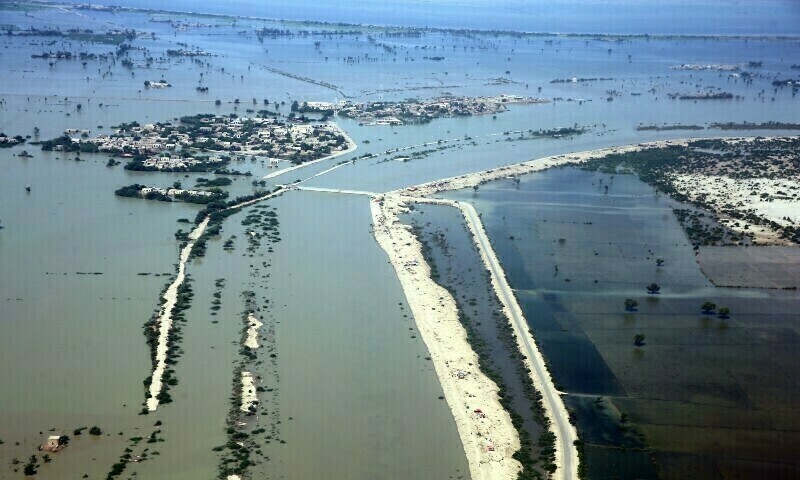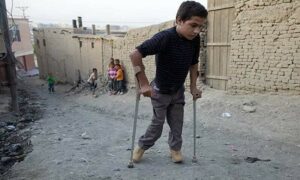ISLAMABAD: Pakistan on Tuesday expressed disappointment over the limited international support to rebuild livelihoods and infrastructure following the devastating 2022 floods, which caused over $30 billion in damages and losses to the national economy.
Shortly after the floods, the international agencies, particularly the World Bank, Asian Development Bank, United Nations and the European Union, assessed the total damages at more than $14.9bn, with total economic losses exceeding $15.2bn. These agencies warned of economic and social challenges unless the international community supported rehabilitation and recovery.
The international community then committed about $10.8bn in financial support to help the government build resilience and get population back on its feet as Pakistan demanded “climate justice” to invest in rehabilitation and climate adaptation efforts.
Two years later, Pakistan feels disappointed as only $2.8bn had been disbursed by May this year, accounting for less than 26 per cent of the $10.8bn commitments. Besides, over $1bn of this amount came from the repurposing of past commitments for different purposes.
Only $2.8bn of the $10.8bn commitments disbursed by May this year
Minister for Planning and Development Ahsan Iqbal raised the issue during a meeting with ADB’s director for the transport sector, Chen Chen, highlighting that the 2022 floods caused $30bn in damage.
Mr Iqbal “lamented the inadequate international response, noting that critical programmes in education, health, and Sustainable Development Goals (SDGs) had to be repurposed to address flood relief efforts”, an official announcement said.
The minister “stressed that Pakistan should not bear the brunt of conventional financing losses due to these disasters, particularly as the country did not receive sufficient support from nations responsible for exacerbating climate change”, it added.
Earlier, former caretaker prime minister Anwaarul Haq Kakar had reminded the international community in September 2023 of its unkept pledge for flood-related assistance. In June this year, Minister for Economic Affairs Ahad Cheema also raised the matter with development partners.
The ADB delegation, led by Mr Chen, also included senior officers and specialists from the Transport Sector Group, while the Ministry of Planning was represented by the member for infrastructure Waqas Anwar and senior officials from the infrastructure department. The meeting focused on ADB’s ongoing support for Pakistan’s transport sector, future development plans and the challenges facing the sector.
During the meeting, Mr Iqbal emphasised the importance of road and rail connectivity projects in Pakistan, noting that the country is finalising a comprehensive regional connectivity multi-modal plan. He welcomed ADB’s input in this regard, stating that it would greatly enhance the work already completed by Pakistan.
Mr Iqbal expressed Pakistan’s strong interest in enhancing the capacity of its railways through modern technology and emphasised the need for prioritising connectivity projects that align with the National Reforms Agenda. He also urged the revival and review of several key projects related to railways, transport and maritime infrastructure that had been approved in 2018 but were stalled under the previous government.
The Pakistani delegation also recommended that the ADB establish a knowledge-sharing system to allow countries around the world to easily access and learn from its models and experiences. Both sides discussed in detail the Multi-Tranche Financing Facility for road projects and expressed their commitment to collaborate on future endeavours in this sector.
Published in Dawn, October 2nd, 2024







